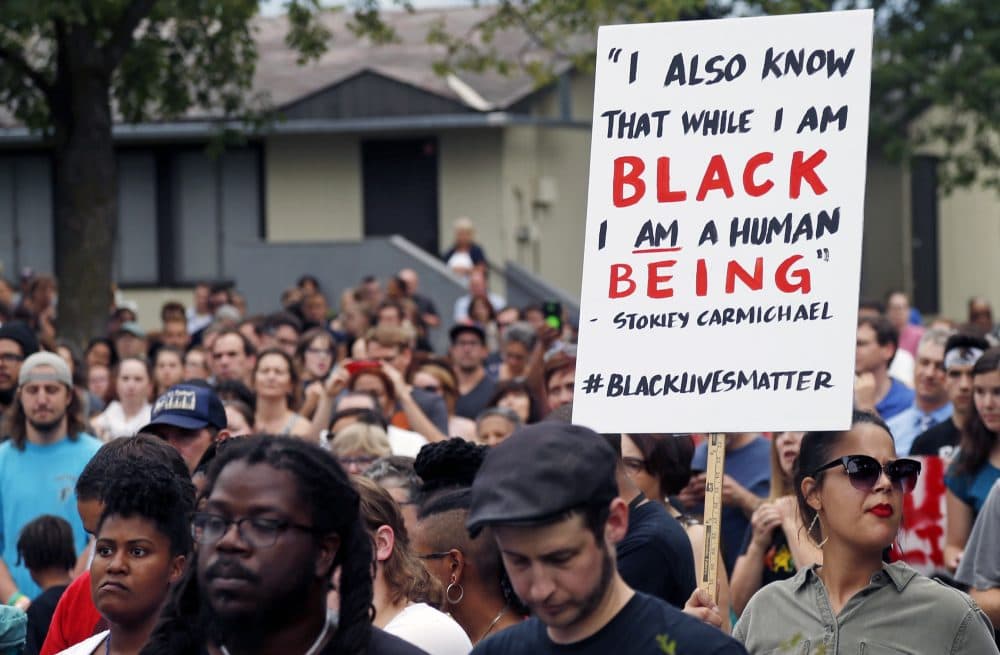Advertisement
Recent Police Shootings Renew Conversations Among Black Americans About Police Interactions
Resume
The fatal shootings of black men by police last week in Baton Rouge, Louisiana, and Falcon Heights, Minnesota -- along with videos of both incidents -- is reviving conversations around the country and in Boston about interacting with police, particularly within black families. They're conversations about caution and fairness.
Steven Pascal, 43, lives with his wife and two children in Milton. He has a teenage daughter and an 8-year-old son. And last week, he found himself forced to confront a difficult topic when his daughter showed him a video of the shooting death of Alton Sterling in Baton Rouge.
"Well, she showed me the video, and there wasn’t much conversation," Pascal said in an interview Thursday afternoon, hours before a lone gunman attacked and killed five officers at a Black Lives Matter protest in Dallas, Texas. "She’s like, 'Dad, this is so depressing, I can’t believe this is happening,' and what do you say that? It is depressing. It is unfortunate that it’s happening."
What to tell the 14-year-old girl about what black Americans have to expect is a tough balancing act, Pascal said, but her life could depend on it.
"You try to teach them about how the world should be, compared to how the world actually is," he said. "So, I can’t fill her head with ideas that, you know what, we’re all equal, everyone should treat each other the same. Ideally, yes. But the reality is, no."
And Pascal found himself having what's known in many black families as "the talk." He had to pass on advice similar to what he heard decades ago.
"We’re taught don't make any sudden moves, keep your hands in plain sight, say 'yes sir,' 'no sir' and basically don’t do anything that can give them any reason to shoot you," Pascal said.
He also wants to teach his daughter what her rights are and about becoming civically engaged. Pascal said videos of the shootings are good, because they're exposing what's happening in communities and opening up the conversation about police-community interactions.
For Pascal and his family, "the talk" can't be just a one-time event. He found himself in another conversation with his daughter via text. After the recent police shootings, Pascal said his daughter is trying to make sense of it all.
"I said 'Is everything OK?' and she said, 'No, I’m just very scared.' She said, 'It's scary to know that you could be out' — meaning me — 'out in the world, just going to work and someone could take your life just because they have power over you.'
"She said it's very scary, and it's frustrating. So this is the mind of a 14-year-old young girl worried about her father, so I try to reassure her the best I can," Pascal said.
And that's the challenge. He wants to make sure his children don't live in fear, but make sure they never end up in a terrible situation.
This segment aired on July 11, 2016.
